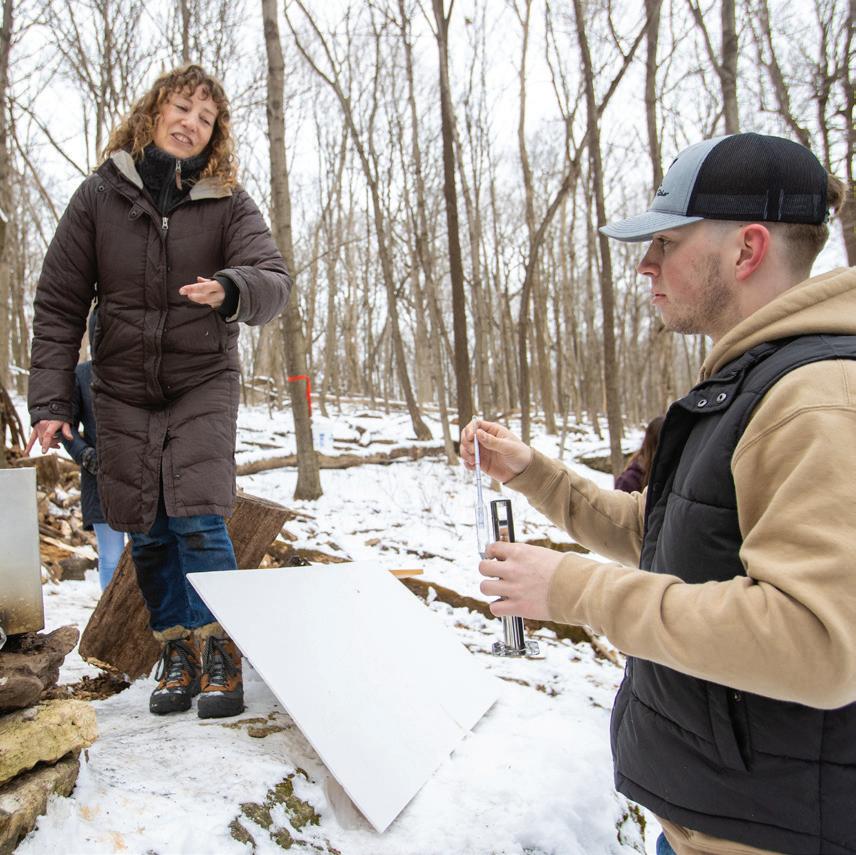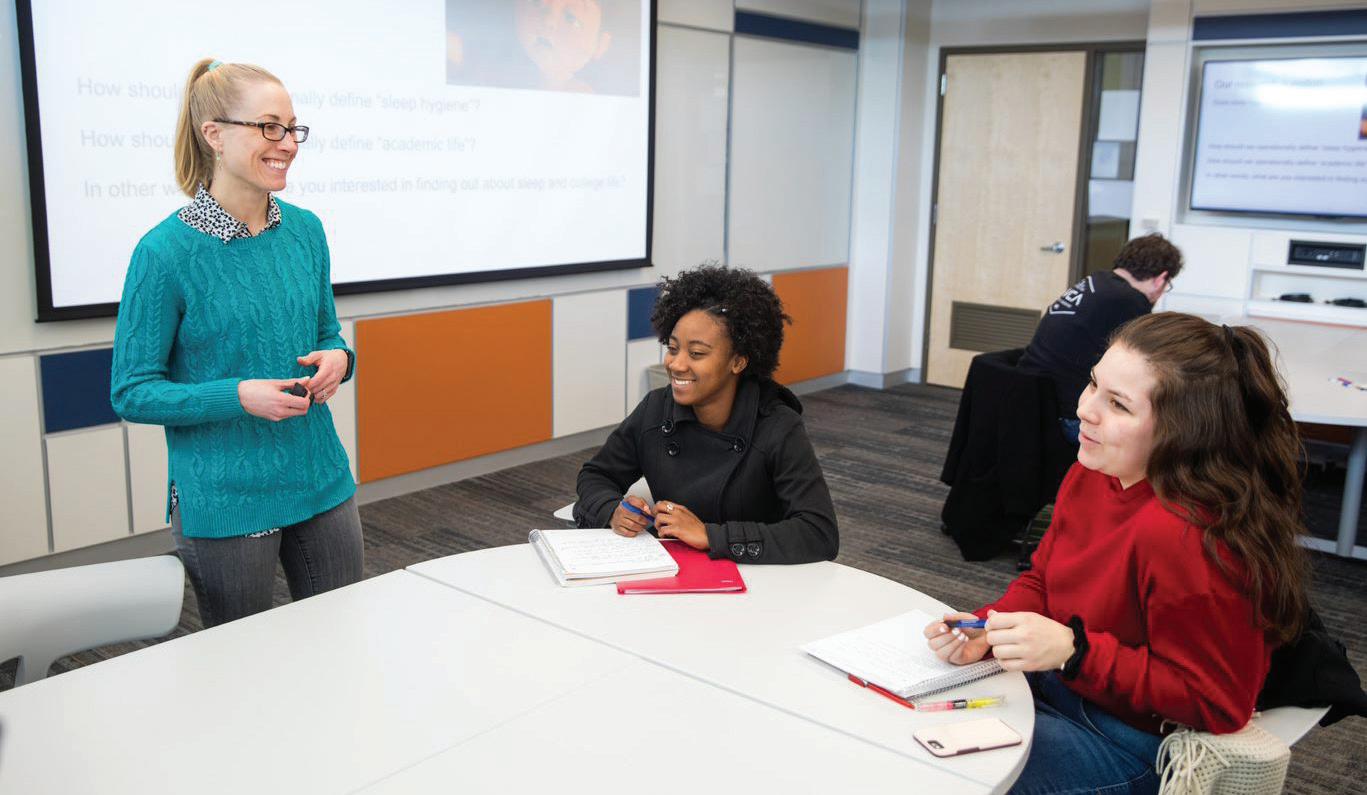
1 minute read
BOUNDLESS AND CREATIVE INQUIRY DEPARTMENT OF ENVIRONMENTAL SCIENCES AND SOCIETY
By Chris Underwood, Department Chair
Students and faculty in the Department of Environmental Sciences and Society engage in boundless and creative inquiry in all we do. It is such an integral part of our curriculum. In fact, we require our majors to complete at least seven credits of research-based coursework in which they investigate all aspects of the environmental sciences. These courses include Planet Earth, where students study the effects of climate change on nature through a series of hands-on laboratory exercises; The Land Ethic, where students learn about and engage in reciprocal relationships between humans and nature; and our Guided Research courses, in which students partner with faculty to execute externally-funded research projects on environmental change, plant-human relations and land practices, wildfires, biogeography, and more. The Department of Environmental Sciences and Society endeavors to engage with some of the most difficult, complex, and important questions posed today—the answers to which could determine the very fate of our species and planet.

For the past several years, UW-Platteville students and faculty in the Environmental Sciences and Society and History programs have helped establish a sugarbush on the Platte Mound. Tapping maple trees and boiling maple syrup and maple sugar has helped students connect with and learn about the land and its history in important ways. Jon Greendeer, former president of the Ho-Chunk Nation, helped mark the start of the sugarbush season with events open to the campus and community in March. Greendeer delivered a guest lecture in Nohr Gallery, Ullsvik Hall, on Land and Indigenous Knowledge. He also led the sugarbush opening event at the Platte Mound.












